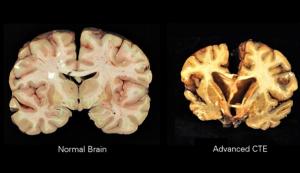Chinese Neurosurgical Journal Study Urges Attention to Africa’s Chronic Traumatic Encephalopathy Research Deficit
Increasing risk of chronic traumatic encephalopathy in Africa poses serious healthcare concerns considering the lack of awareness and research
BEIJING, CHINA, August 7, 2025 /EINPresswire.com/ -- Engaging in contact sports such as rugby, boxing, and American football often results in repeated head injuries, now recognized as the cause of a progressive neurodegenerative disease known as chronic traumatic encephalopathy (CTE). CTE leads to neuronal damage that can cause memory loss, mood swings, and behavioral changes. Diagnosing CTE remains a major challenge, as symptoms may take years to appear. Raising community awareness and strengthening medical capacity are critical for timely diagnosis and effective treatment.While medical professionals and sports communities in North America and Europe have begun addressing the risks of CTE, Africa continues to lag behind. In a recent letter to the editor, Dr. Abdulbasit Opeyemi Muili, a medical student at Ladoke Akintola University of Technology, Nigeria, alongside colleagues from Obafemi Awolowo University, Nigeria and Moi University, Kenya, highlights the continent’s significant research and awareness gap. Their work was published online in the Chinese Neurosurgical Journal on 1 February, 2025.
Calling to attention the urgent need for better awareness on CTE, Dr. Muili, notes, “Without intervention, Africa is at risk of delayed diagnosis and inadequate treatment which plagued the USA in the early 2000s, potentially straining healthcare systems and affecting public health outcomes in the continent.”
The African community has long engaged in contact sports such as boxing and rugby. With the growing popularity of American football and the introduction of international coaching programs, the risk of head injuries among African youth is rising. Despite this, there are no recorded studies reporting the incidence or prevalence of CTE in Africa.
The lack of awareness on CTE is very concerning as the community and healthcare system appears unprepared and unequipped to face this challenge. Medical professionals are unfamiliar with CTE and it is likely to go unreported or confused with other mental health problems or dementia.
The authors highlight a significant research gap in CTE studies in Africa, pointing to the absence of large-scale epidemiological or clinical investigations. Even small-scale clinical case reports are rare, leaving CTE an unrecognized and underreported threat in the region.
One of the key barriers to CTE research is the lack of necessary infrastructure for accurate diagnosis. Comprehensive neuropathological evaluation—essential for confirming CTE—requires specialized facilities and trained professionals, both of which are limited across much of Africa. In the absence of such resources, CTE cases are more likely to be misinterpreted or overlooked altogether. Compounding this issue is the limited availability of research funding, which discourages efforts to launch clinical trials or retrospective studies.
Cultural and religious resistance to post-mortem brain donation further hinders progress. Much of what is known about CTE today has come from the study of donated brains. However, in many African communities, including among the Zulu and Yoruba populations, brain donation remains a cultural taboo, limiting opportunities for pathological study.
The authors propose a multipronged approach to overcome the potential CTE ‘crisis’ in Africa. Improving on the existing medical curriculum to include the risk factors, symptoms, and disease pathology of CTE will ensure preparedness. Stressing on the importance of CTE education, Dr. Muili says, “Proper awareness of the risk factors and symptoms of CTE will go a long way in sensitizing both people and health professionals to the disease and building the interest of prospective researchers in the area.”
The authors urge medical professionals and CTE researchers to actively engage with communities and religious leaders to sensitize them to the myths surrounding organ donation in general. They point out that local government should support CTE research by funding large-scale studies and recommend international collaborations to build local expertise.
Ultimately, the authors issue a ‘wake-up call’ to both African and global health communities: addressing the CTE research gap now is critical to avoiding future strain on Africa’s healthcare systems and to improving long-term outcomes for athletes at risk.
***
Reference
Title of original paper: Addressing the deficit in chronic traumatic encephalopathy research in Africa: a call for urgent attention
Journal: Chinese Neurosurgical Journal
DOI: 10.1186/s41016-025-00388-5
About the University:
Ladoke Akintola University of Technology (LAUTECH) was established in 1990 as a public technological institution in Ogbomoso, Nigeria. It offers a robust academic environment through its diverse faculties, reflecting a strong commitment to innovation, applied research, and practical learning. Renowned for its excellence in science, engineering, health, and technology education, LAUTECH serves over 30,000 students across undergraduate and graduate programs. With a focus on problem-solving, entrepreneurship, and community impact, the university fosters a spirit of resilience and leadership. LAUTECH continues to shape future-ready graduates equipped to drive progress and transformation across Nigeria and beyond.
Website: https://www.lautech.edu.ng/
About the author:
Dr. Abdulbasit Opeyemi Muili is a medical student and researcher from Ladoke Akintola University of Technology, Ogbomoso, Nigeria, with growing expertise in neurology, neurosurgery, and infectious diseases. He has authored over 65 scientific publications, accumulating more than 300 citations and 10,000 reads on ResearchGate. His research covers neurogenomics, dementia care, telemedicine, and public health. Recognized in the AD Scientific Index with an H-index of 12, he was recently nominated for Sigma Xi membership. Dr. Muili also works as a freelance medical writer and editor, contributing to global discourse on Parkinson’s disease, COVID-19, and digital health innovation in Africa.
Yi Lu
Chinese Neurosurgical Journal
+86 10 5997 8478
luyi617@sina.cn
Legal Disclaimer:
EIN Presswire provides this news content "as is" without warranty of any kind. We do not accept any responsibility or liability for the accuracy, content, images, videos, licenses, completeness, legality, or reliability of the information contained in this article. If you have any complaints or copyright issues related to this article, kindly contact the author above.

